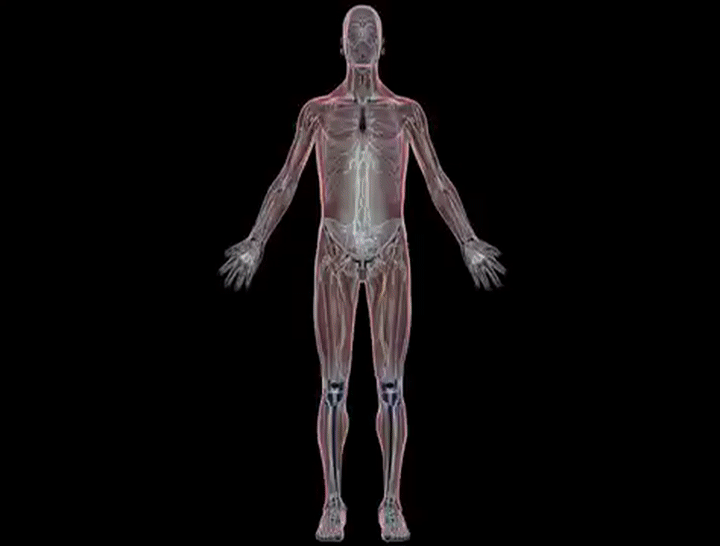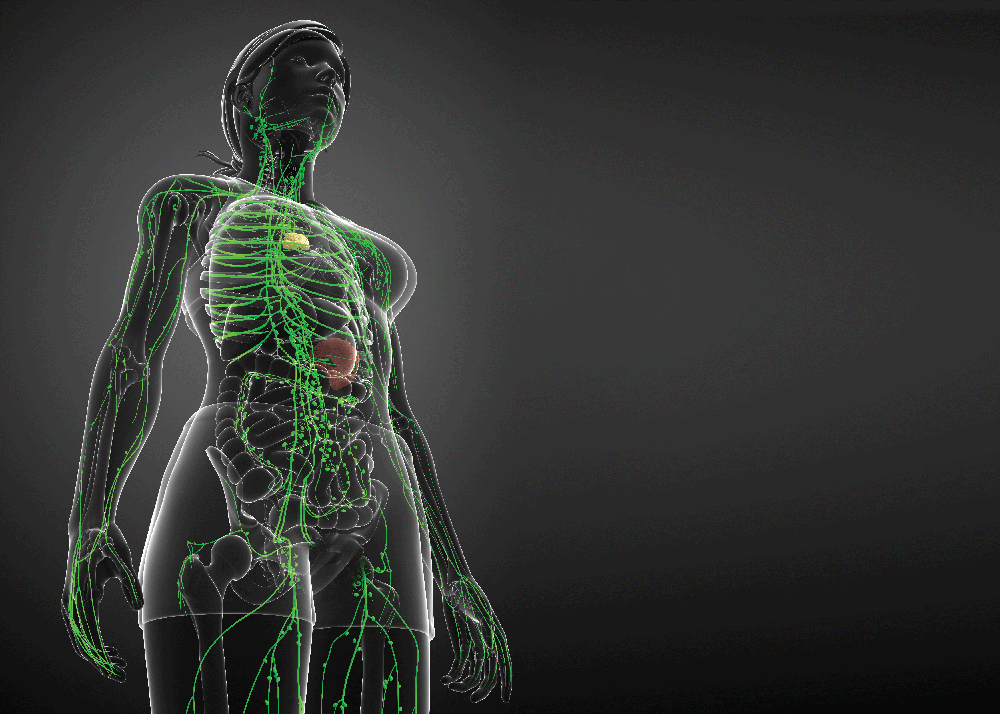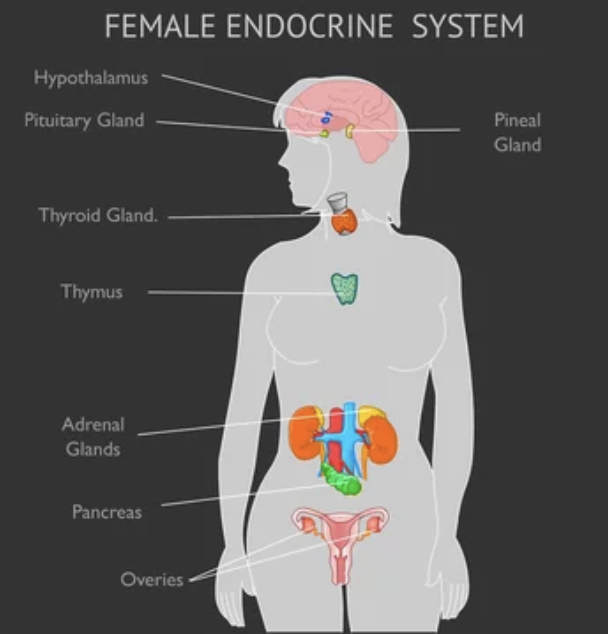
The human body was meant to be a body in motion. We evolved to walk, run, and engage in physical activity. However, in today’s world, long-term sedentary lifestyles have become the norm for many of us, and this is wreaking havoc on our bodies in ways we might not even realize. Our bodies are complex systems, with interconnected processes that work in harmony to keep everything running smoothly. A change in one system can cause a ripple effect, impacting other systems, even if they initially seem unrelated. This is why sitting down for extended periods is equivalent to shutting down our bodies, causing disastrous effects including chronic inflammation that go beyond just feeling lethargic.
The Lymphatic System
One system that’s particularly affected by inactivity is the lymphatic system. The lymphatic system is often overshadowed by its more famous cousin, the circulatory system, but it plays a vital role in maintaining our health. This system comprises lymph vessels, lymph capillaries, and lymph nodes clustered in specific areas of the body. Its primary function is to remove swelling and other effects that come with inflammation.
Lymphatic fluid, also known as lymph, moves through this system, carrying impurities, toxins, and errant cells, including cancer cells, for breakdown and removal. In a healthy body, the lymphatic system moves about 4 liters of lymph every day, nearly as much as the circulatory system moves blood.

Unlike blood circulation, lymphatic fluid only moves in one direction, and there’s no built-in pump like the heart for the cardiovascular system. Instead, the lymphatic system relies on muscle contractions to propel lymph fluid through the lymph nodes. In a normally functioning body, the lymphatic system is constantly cleansing us with fresh fluid, ensuring that impurities, toxins, and inflammatory cells are removed.
However, chronic inflammation can disrupt this delicate balance. Inflammatory swelling is essentially a pooling of interstitial fluid – the fluid between cells. It’s your body’s reaction to a sedentary lifestyle, stress, toxins from the food you eat, excess body fat, cancer, or a compromised immune system. When the lymphatic system stagnates due to inactivity, it can trigger chronic inflammation, which often flies under the radar and wreaks havoc on your immune system.
Chronic inflammation can lead to a homeostatic imbalance in several physiological systems due to lymphatic system dysfunction, altering the structure and function of lymphatic vessels. Inflammation worsens when the lymphatic system can’t carry waste and inflammatory cells away efficiently. Over time, the lymphatic vessels become damaged from ongoing inflammation, and they can no longer drain fluid effectively, leading to further complications.
The Thyroid

Now, let’s talk about the thyroid, that small but crucial gland in your neck. Your thyroid hormone regulates your fluid balance. When chronic inflammation sets in, inflamed cells can block thyroid receptors, causing thyroid hormone imbalances. Thyroid hormones, triiodothyronine (T3) and thyroxine (T4), are pivotal in regulating growth, development, metabolism, and the immune system.
The Pituitary Gland
The pituitary gland, nestled in your brain, plays a vital role in thyroid function by producing a hormone called thyroid stimulating hormone (TSH). Any disruption in this system can have significant effects on your thyroid and overall health.

It’s All Connected
It’s not just your thyroid that’s affected; the entire endocrine system can experience a domino effect due to inflammation. It is no wonder that the American diet and a sedentary lifestyle has wreaked havoc on Black Women having high instances of fibroids (check out our article here), Polycystic ovary syndrome (PCOS), weight gain, hair loss, and more. A 2019 study even showed that individuals with rheumatological autoimmune disorders had impaired lymphatic systems, linking lymphatic issues to various autoimmune conditions. This reinforces the importance of a properly functioning lymphatic system for overall health.

Get Up and Move
So, what can you do to prevent these issues or address them if they’ve already taken hold? The key lies in movement. If you’re not moving, lymph pools in the vessels and doesn’t do its job effectively, carrying inflammation and extra fluid away from affected tissues. Deep exercise, like brisk walking, jogging, or resistance training, is crucial for a healthy immune system and your body’s ability to heal.
Exercise helps improve muscle contractions, fluid balance, and inflammation control, ensuring that your lymphatic system can carry out its essential functions. In addition to exercise, maintaining a balanced and anti-inflammatory diet can go a long way in preventing chronic inflammation. Check out our article that shows that when combined with a healthy meal plan, exercise can help with weight loss and weight maintenance.
The human body is a complex and interconnected system where seemingly unrelated issues can be interlinked. Thyroid problems and other health issues can arise when our lymphatic system becomes stagnant due to inactivity and chronic inflammation. To keep your body in its best shape, it’s essential to move regularly, eat a balanced diet, and take steps to reduce chronic inflammation. Remember, your health is a holistic puzzle, and it’s essential to pay attention to all the pieces for long-term well-being.
Leave a Reply